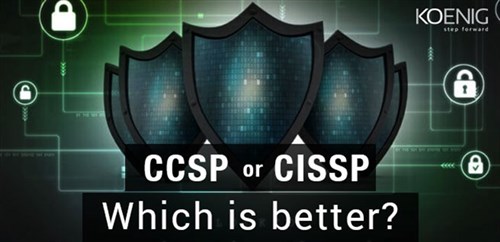(1).pngL.jpg)
What is a Certified Ethical Hacker?
The word ‘hacker’ has an image problem because of malicious third-party players. This makes the term ‘ethical hacker’ seem like an oxymoron, but this business credential is invaluable throughout the industry.
Why Should You Choose a Certified Ethical Hacking Course?
Koenig’s CEH v11 certification training program offers you several benefits, including those that no other platform provides, which includes
- Providing a detailed understanding of globally applicable information and data security standards.
- Boosting your career significantly with the addition of a highly-valued credential.
- Providing expert cybersecurity instructors and practical lab sessions to understand concepts better and clear the certification exam.
- Engaging with real IT security experts and professionals from different sectors to help you understand different types of security breaches.
You May Also Like: Become an Ethical Hacker and Save the World, One System at a Time
How to Become a Certified Ethical Hacker:
If you have work experience of at least two years in IT security, you can apply for approval to appear for the EC-Council exam. If you don’t have work experience, you will have to attend training at a training centre through our approved online program.
Who Can Take This Course?
- Penetration Tester
- IT Security Tester
- Information Security Analyst
- Security Assurance Auditor at a mid-level post
- System Security Administrator
- SOC Security Analyst
- Solutions Architect
- Security Compliance Analyst
- Senior Security Consultant
- Vulnerability Assessment Analyst
What Does a CEH Course Teach You?
A Certified Ethical Hacker performs several types of operations through their day-to-day operations. It requires several specialised skills. When you complete your CEH training, you will learn:
- The different steps of the processes and methods that hackers use to hack into systems.
- Everything about trojans, backdoors and preventive measures to prevent attacks
- Wireless hacking, firewalls, IDs.
- Different concepts like advanced hacking, mobile hacking, virus codes, writing them, reverse engineering, and corporate espionage.
- Additional software and database platforms including Oracle databases, Apache web servers, Powershell, among others.
- Threats and access vulnerabilities within networks and mobile app security.
- Managing information security and information assurance.
Steps to becoming a Certified Ethical Hacker:
- The first step to becoming a CEH is to enroll in the official CEH v11 training course on Koenig.
- Once you have enrolled, complete your training and then clear the CEH v11 official examination via EC-Council or Pearson Vue.
- Attend and participate in the CEH practicals. This is a 6-hour session that you must clear with a score of at least 70%.
- Once you have done these and you meet the criteria, you will be a master ethical hacker.

min(1).pngM.jpg)

min.pngM.jpg)


.pngM.jpg)
COMMENT